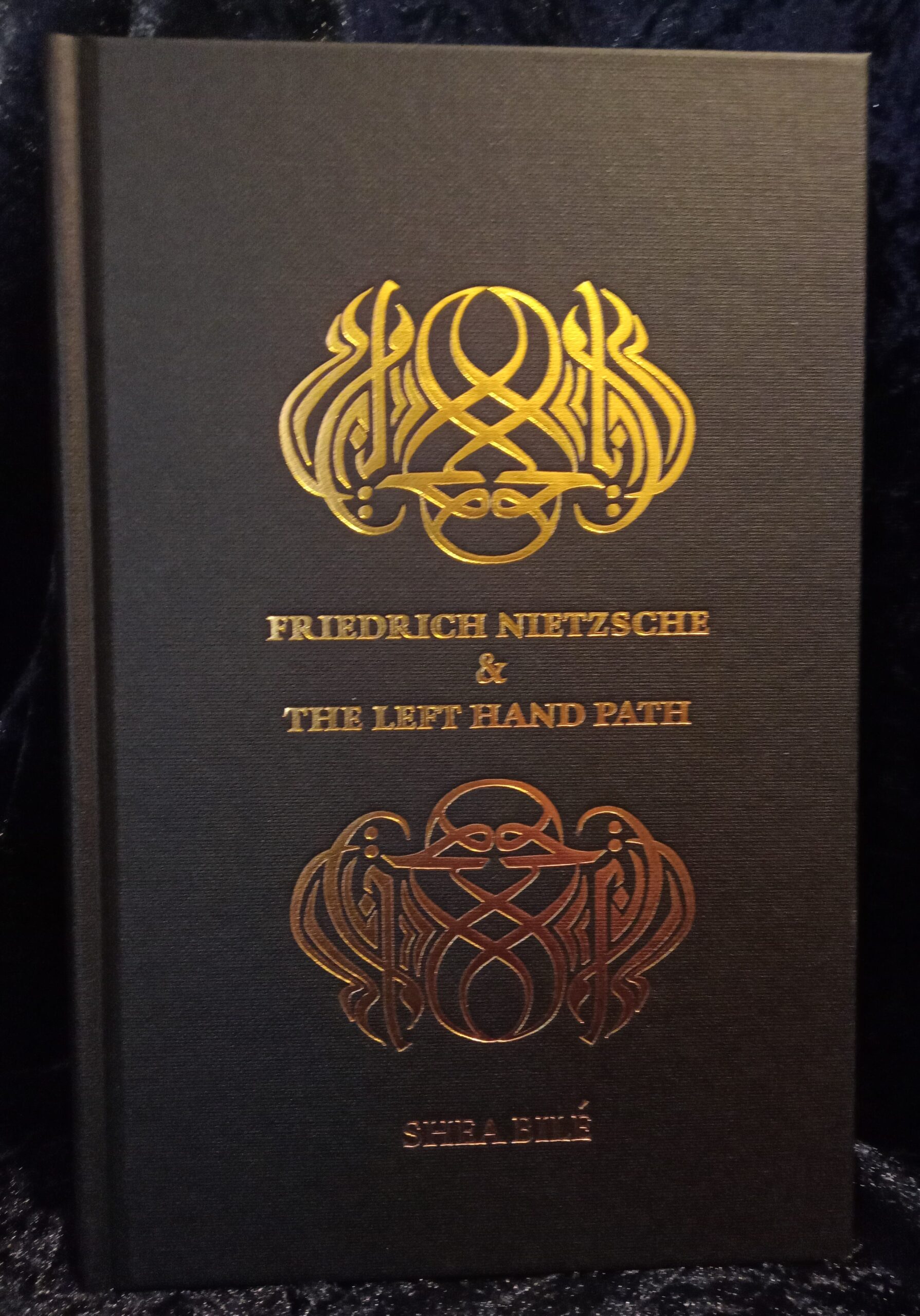£69.00
standard hardcover. Gold foil blocked cover to front, spine and back
Head and tail bands
Scarlet ribbon
2 in stock
Description
“Now I belong to the Devil. I go with him to Hell. Break, break, poor hearts of stone!”
Friedrich Nietzsche from The Dawn of Day.
For the seeker of truth, an encounter with tragedy and the innermost abyss is inevitable. An unrepentant spirit of liberating self-analysis edifies Friedrich Nietzsche’s philosophy and in doing so establishes it as a foundation for religious, moral, and political antinomianism, anarchy, and dissent. For many of the subversive movements over the past 130 years, Nietzsche’s name has remained ever-present, with his philosophy stoking, even emblazoning the black flame of independent thought in the hearts and minds of those who have chosen to question and counteract.
Nietzsche’s influence on the Left Hand Path and Satanic milieu is undeniable – the concept of the will to power, the overman/Übermensch, the Dionysian force, active and passive nihilism, slave morality, life-affirmation, etc. – has been absorbed into the writings of foundational esoteric thinkers who have overtime proceeded to forge a path for contemporary religious heterodoxy and an antinomian esoteric tradition.
Many have understood Nietzsche’s philosophy as being wholly deconstructive or antinomian; however, a comprehensive analysis on Friedrich Nietzsche and the Left Hand Path emphasises the positive rebuilding of values after the deconstruction of nihilism. Through a careful analysis of Left Hand Path philosophy, along with its fundamental tenets of contemporary religious Satanism, has led the author to question the problem of nihilism as defined by Nietzsche. Consequently, Friedrich Nietzsche and the Left Hand Path produces a deeper understanding of the effects of nihilism, self-destruction, decadence etc. while providing solutions for overcoming it. Moreover, this book consequently explores the possibility that Satanism, as a modern religious phenomenon, reconciles the passive nihilism of our day.





